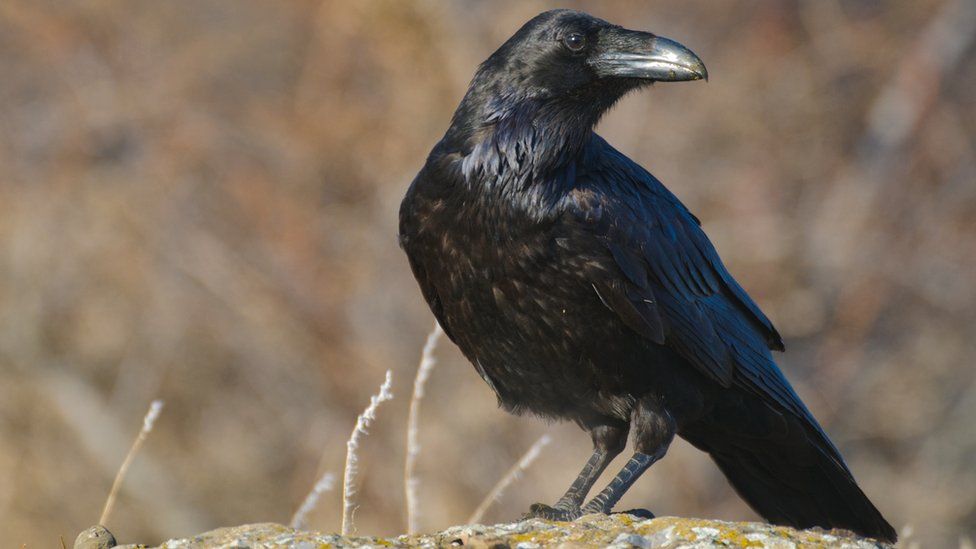Raven cull licence suspended for being 'not scientifically robust'
- Published

A controversial raven-culling licence in Perthshire has been voluntarily suspended after a review found it was not scientifically robust.
The Strathbraan Community Collaboration for Waders had been granted the licence to control the protected birds to study the impact it would have on waders.
RSPB Scotland, which objected to the licence, has welcomed the decision.
Scottish Natural Heritage announced an internal review of its decision to grant the licence.
A crowdfunded legal challenge to the decision was lodged earlier this month at the Court of Session.
The Scottish Raptor Study Group, which was behind the challenge, said it believed the licence was instead being used to protect red grouse on shooting estates.
That claim is denied by the Scottish Gamekeepers Association.
Prof Des Thompson, principal scientific advisor on biodiversity at SNH, said: "Populations of curlew and lapwing in Scotland have more than halved over the past 20 years. We are rapidly reaching crisis point and we need to take action. After all, the curlew is one of our most rapidly declining of all our breeding bird species in the UK.
"Our scientific advisory committee has provided us with a detailed assessment and very helpful pointers to further work at Strathbraan and more widely. In particular, the committee notes that more needs to be done to understand the effects of predation by ravens and other factors in driving down wader numbers.
"We need to learn from this trial, and the experience and knowledge gained, and move on to develop advice and support for action on the ground to benefit waders."
The initial licence was granted for a five-year period and allowed land managers to kill up to 69 ravens in the first year.
That number would then be reviewed annually.
At the time, SNH said it represented less than 0.5% of the total raven numbers in Scotland.
The committee's review has now found that the project was inadequate at providing robust scientific conclusions.
It has made a series of recommendations which will now be incorporated into the terms of the licence. SCCW has volunteered to suspend the project until the new licence is drawn up.
An advisory group to oversee the project will be established with members including the British Trust for Ornithology and the Game and Wildlife Conservation Trust.
An RSPB Scotland spokeswoman said: "We welcome the decision... to suspend the research licence for the contentious Strathbraan raven and wading bird project, following the recent input and advice from its scientific advisory committee. We also appreciate the promise to involve a wider stakeholder group in developing next steps.
"We also welcome the fact that this work will be overseen by the emerging "Working for Waders" partnership, involving all key stakeholders.
"Improving the conservation prospects for our declining and internationally important wading bird populations is a high priority for the work of RSPB Scotland. However, in our view this challenge needs to be met on the basis of sound science, which is then tested on the ground to identify and improve practical and lawful land management techniques."
A spokesman for Strathbraan Community Collaboration for Waders said: "Local farmers and gamekeepers have been united in trying to prevent further loss of rare birds such as the curlew, which would be tragic especially as action on the ground clearly makes a difference.
"Thanks to the licence, and hens being in good breeding condition, we are delighted to say it has been an excellent breeding year in Strathbraan. Folk at the sharp end have even seen nests of four fledged curlew chicks for the first time, greatly helped by being better able to protect the chicks and eggs from the raven flocks that have been so damaging in recent years.
"In terms of wader conservation, therefore, it has been a much better season. The license has been temporarily suspended so those on the science side can make adjustments.
"However, the community remains committed to wading bird conservation, spurred on by what has been achieved so far."
- Published21 June 2018
- Published2 May 2018